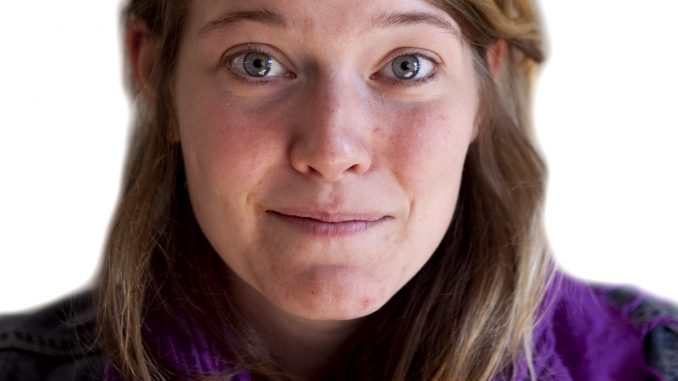
 Onions sizzle in my frying pan as I crack an egg and turn the dial to National Public Radio: the morning routine. I relish this time, before the day starts, during which I can nourish my body while giving ear to some colorful audio news stories about my city and world.
Onions sizzle in my frying pan as I crack an egg and turn the dial to National Public Radio: the morning routine. I relish this time, before the day starts, during which I can nourish my body while giving ear to some colorful audio news stories about my city and world.
Recently, though, I find myself hitting play on the Misfits CD that lives in the kitchen than tune in to WHYY.
Almost as egregious as the fundraisers that halt normal programming begging for listeners’ support is the monotonous presidential race coverage. For months, the media has given us a tedious stream of “Obama did this” and “Romney said that” tidbits from the campaigns that will just get buried under the next day’s barrages. Personally, I prefer to wash my breakfast down with “Some Kinda Hate.”
Searching for options is daunting in a political system gridlocked by two huge, powerful parties. Political discussions that my professors have facilitated in classes this year mostly show disillusionment with the two potential presidents that are fighting for our vote but won’t necessarily be responsive to our interests if elected.
A few weeks ago, I stumbled across the Project Vote Smart website, and its VoteEasy presidential candidate matchup. I rated how important certain policy issues are to me. At the conclusion of the quiz, I found Rocky Anderson to be my presidential soulmate. I had never heard of him before, so I looked him up.
Everything I read sounded great. Anderson co-formed the Justice Party, as a platform to run. The Justice Party emphasizes escaping from a two-party system locked down by corporate interests, while perusing sustainable social, economic, and environmental policy that will benefit the general public.
According to OnTheIssues, Anderson’s platform reads like a left-leaning college student’s dream. He’s willing to address all the issues that bug us and steer politicians’ hands out from the pockets of the corporations we despise.
I’ve been of voting age for two years, but haven’t bothered registering until recently because of an overwhelming apathy toward politics that I share with many of my peers. Many young people are cynical because they feel that their vote cannot make a dent in a government filled with politicians who cater to the big businesses that fund their campaigns.
Even though the media has been blasting us for months with information and updates about the race to the White House, few Pennsylvanians have heard about Anderson and his campaign. When he came to speak in Harrisburg in August, only 15 attendees bothered to come and listen. Why the lack of attention and publicity? Why don’t we see any Anderson campaign swag?
Primarily, this is because ballot restrictions in Pennsylvania and other states make it extremely difficult for third parties to slip onto the ticket. Without the funds to canvas for his name and vision, it becomes very difficult to get the required 2 percent of Pennsylvania’s population to sign a petition that would allow a third party on the state’s ballot.
I came across a website for The Pennsylvania Ballot Access Reform Coalition, and found that it is headquartered in Swarthmore. I headed out there the following Saturday to meet Bob Small, one of the coalition’s co-founders and a member of the Green Party. He was able to give me some insight into the failure of third parties in our current political climate.
Like any political party, the success rate of third parties is dependent on how many votes they get. But instead of rallying others and spreading the word about their candidates, their time and energy is spent attempting to get their candidates on the ballot.
The coalition has worked for the past few years to try to pass a ballot access bill that would ease the process for third parties. The bill would end the requirement that in order to run local candidates, third parties must also run national candidates.
“Third parties generally get caught up in trying to get our candidate on the ballot, and since most of us are volunteers, that’s all we have time for,” Small said.
All of this reminds me of a line from a Misfits song that I so often choose to listen to instead of the reports on attacks made by neck-and-neck presidential candidates: “This is a static age we live in!”
The album produced in 1997 turns into some kind of morning prophecy. Without more variety and color in our political options, our once vibrant and passionate democracy will continue to remain gridlocked and stagnant.
Abi Reimold can be reached at abi.reimold@temple.edu.



Be the first to comment